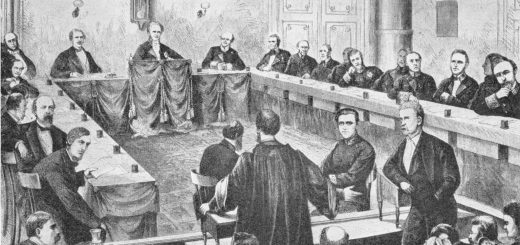“Irresponsible Journalism” Back on the Debate Table as British Newspaper Appeals to UK Supreme Court for Qualified Privilege
Newspapers once again find themselves on the losing side of libel suits. On July 13, 2010, in Flood v. Times Newspaper Ltd. [2010] EWCA Civ 804 (“Flood”), the England and Wales Court of Appeal (Civil Division) (“EWCA”) overturned the trial decision and held that a newspaper was unable to claim qualified privilege for online reporting of a criminal investigation.
The original newspaper article entitled, “Detective accused of taking bribes from Russian exiles. Police investigating the alleged sale to a security company of intelligence on the Kremlin’s attempts to extradite opponents of President Putin, Michael Gillard reports” resulted in a lawsuit for libel against the newspaper for the print and online publications of the article.
The EWCA overturned the Queen’s Bench decision that held in 2009 that the Times could rely on the Reynolds defence for qualified privilege. This defence was originally established over a decade ago by the House of Lords in another case involving journalists at the Times Newspaper for potentially libelous statements in a political discussion: Reynolds v. Times Newspaper Ltd. [1999] 3 All ER 961 (“Reynolds”). The Reynolds defence allows a journalist to raise this defence by proving qualified privilege based on ten criteria:
- The seriousness of the allegations
- The nature of the information and the extent to which the subject matter is a matter of public concern
- The reliability and motivation of the sources of information
- The steps taken to verify the information
- The status of the information
- The urgency of the matter
- Whether comment was sought from the claimants
- Whether the article contains the claimants’ side of the story
- The tone of the article
- Other circumstances
After prior judicial affirmation, most notably, by Jameel v. Wall Street Journal Europe [2006] UKHL 44, the application of this test has now come into question as a result of the EWCA decision in Flood. The EWCA in Flood applied the Reynolds defence to conclude that the defendant did not meet each criterion, namely, that “the journalists do not seem to have done much to satisfy themselves that the allegations were true” when they wrote the article. The allegations were “no more than unsubstantiated, unchecked accusations from an unknown source coupled with speculation.” Amid the “serious allegation of crime or professional misconduct” the article ultimately constituted irresponsible journalism. Others suggest the narrowing of the application of the Reynolds defence by raising the standard of journalistic verification.
Equally concerned for its reputation, the Times is now appealing this decision to the UK Supreme Court. The Times application claims that the EWCA misapplied the criteria of the Reynolds defence and that the decision is irreconcilable with other judicial applications of the same test. In response, some commentators lament that “Reynolds is dead,” while the Times wants the UK Supreme Court to settle the issue to bring this case in line with prior UK jurisprudence and to bring back professionalism as a defence to aid journalists in the reporting of sensitive news.
Speaking of reporting sensitive news, Maclean’s “Too Asian” article has come across from recent scrutiny in Canada for “irresponsible” journalism for being “Too Brazen.” As mentioned in a previous edition of Amici Curiae here at The Court, Canada’s national weekly news magazine, Maclean’s Magazine recently published an article expressing concern about Canadian university campuses enrolling a high population of Asian students. It would be interesting to test if hypothetically whether the Maclean’s article would pass all ten criteria of the UK Reynold’s test in the Canadian news context.







Join the conversation